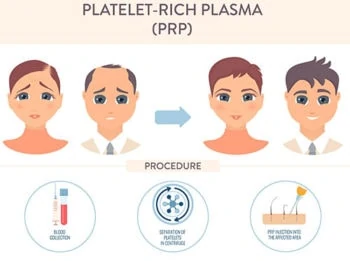Original article by Maryam Lieberman
I was extensively quoted in W Magazine this month on the topic of hair loss during these crazy pandemic times. We wanted to share it with you as the writer did a fantastic job covering this issue. Thank you, Maryam. -Thais
Three medical experts give their best tips on how to slow hair loss and thinning
Over the last year, hair loss has become a major grievance affecting many—including myself. After a particularly stressful summer, I noticed in December a fair clump of hair shedding onto my pillow each morning. And while brushing in the shower, the usual amount of hair left on the brush had suddenly tripled (because I am Iranian, I’m blessed with two things: temerity and lots of hair). Coincidentally, two good friends of mine started complaining about the same issue. Was it Covid-related (one had the virus, and one did not)? Was it simply due to the stress of a global pandemic? Or did it have to do with Los Angeles? (I started to think that maybe there was some sort of nuclear waste leaching into the city’s water supply.)
But in the next two months, several other girlfriends who lived in various parts of the country reported sudden hair loss. For the record, our ages vary from early-20s to mid-50s, and we all have different hair textures and ethnic backgrounds. There was no way our hormones were all in sync with the same dysfunction, or that we were in any way at the same reproductive stages of our lives.
I reached out to a friend of mine, Cayli Cavaco, for some answers. She’s not just a longtime beauty expert, but also a realist—her cure for whatever’s ailing me will not entail having to check into some trendy ashram where I must partake in a 10-day intermittent fasting experience with a tall, hearty glass of celery juice as a reward for good behavior at the end. “The first person to consult if you are experiencing hair loss is your dermatologist, followed by an endocrinologist, and, if you are a woman, a competent gynecologist,” she advised me. “With that said, the scalp should be treated like the face. A healthy scalp should yield healthy hair if everything is fine internally. Hormones, stress, and vitamin efficiency play a huge factor in a beautiful head of hair.”
In the interest of addressing the hair loss issue in the most thorough and fact-based manner, we consulted with Dr. Doris Day, one of the top New York City dermatologists; renowned Los Angeles and Palm Beach-based endocrinologist Dr. Jordan Geller, and Dr. Thais Aliabadi, one of the top OB-GYNs on the West Coast. These three prominent medical professionals discussed freely and openly their thoughts on hair loss and the environmental, hormonal, and stress-related factors that come into play.
How Stress Contributes to Hair Loss
Dr. Doris Day: If someone is going through a particularly stressful time, hair loss tends to happen a few months later, because of the way the hair cycles. When you go through a period of major stress, the hair shifts from the growing phase to the resting phase during the stress experience. The resting phase lasts for 3-4 months, which is why you see the shedding months later. The hair loss that comes from stress is usually not reversible—it’s rather a shifting of the hair cycles, not a permanent change.
Dr. Jordan Geller: Hair loss tied to stress is called telogen effluvium, and it’s the most common cause of hair loss that we see. The hair normally has three cycles (anagen, during which it grows; catagen, a transition phase, then telogen, the resting stage. Telogen effluvium usually occurs several months after a very stressful period, severe illness (such as Covid-19), or pregnancy and presents with a quick onset of hair shedding. This is caused from an abrupt shift into the telogen phase.
Although we usually diagnose this based on a patient’s history and exam of the scalp, it can also be confirmed by looking at the hair follicles under a microscope. In terms of stress-related hair loss being reversible—this tends to be a temporary condition, as many women who have lost hair after pregnancy can attest to. If it is from stress or an illness, then it will typically resolve in time (as the underlying illness improves) and with better stress management. However, it is very important that your physician run tests for other reversible conditions such as iron deficiency, hormone imbalances, and other causes.
Dr. Thais Aliabadi: When a patient is going through a stressful time, it’s very common for hair loss to occur 2-3 months after. Major stress on the body produces extra hormones to deal with potential threats. These hormones impact hair follicles on the scalp and may affect growth patterns and result in hair loss. As far as it being permanent or reversible, the length of time it takes for hair loss to end depends on the cause and type of stress. Hair loss can last a few weeks to months; however, it is temporary and could still grow back. Early treatment is important to slow it down, especially because male and female-pattern baldness tend to get worse with time.
Hormonal Hair Loss: Pregnancy, Perimenopause, and Menopause
Dr. Doris Day: During menopause, the balance of hormones changes, and can affect signals that tell the hair how thick and long to grow. It may also affect hair texture and color. For women in their 20s and 30s experiencing hair loss, it is often a local effect at the level of the hair follicle. Things like stress, diet, metabolism, hormones, and environmental factors can play a significant role in hair thinning in the 20s and 30s—and beyond. Labs are often normal, even in young women with clear hormonal patterns of hair loss.
Dr. Jordan Geller: In menopause, we often see an imbalance in which women continue to make some testosterone, though obviously have low estrogen. This may be associated with the onset of female patterned hair loss in menopause. In terms of getting your hormones checked if you’re in your 20s and 30s and experiencing hair loss—absolutely. An imbalance of androgens such as excess testosterone, some pituitary hormones, and adrenal hormones can all present with hair loss. In addition, nutritional disorders, autoimmune conditions, and toxins can all play a role.
Dr. Thais Aliabadi: Female hormones fluctuate during perimenopause and menopause, resulting in hair loss. Hormones including estrogen and progesterone keep the hair in the growing phase, allowing it to grow faster and remain on the head longer. When hormone levels drop, hair starts thinning and hair loss becomes more pronounced. Three of the most common causes for hair loss during the ages of 20s and 30s are: stress, dieting, and hormone changes. If someone is experiencing hair loss, then they are recommended to get their hormones checked and possibly treated with medication. In relation to unbalanced hormones and hair loss—is it because of too little estrogen or too much testosterone? Individuals may experience hair loss due to higher levels of testosterone. Dihydrotestosterone (DHT) is a derivative of testosterone and it causes hair follicle death, hence hair loss. In terms of post-pregnancy and hair loss, giving birth is a stressful event in itself and thus hormone fluctuation and imbalance can result in hair loss. Pregnant women have higher levels of hormones; therefore, hair shedding is prevented. But once postpartum, hormone levels such as estrogen start to decline and hair loss begins. Aside from exercise, diet, and reducing stress levels, there are other options for treatment including hair transplants, scalp reduction, skin lifts, and grafts, as well as certain medications, such as minoxidil and finasteride. Normally, with early treatment, hair loss can be slowed.
The Covid Factor
Dr. Doris Day: COVID-related hair loss is the number 1 complaint women have had during this time, in relation to hair loss. Not so much because they contracted COVID-19, but because of all the stress and uncertainty experienced around this time. Some women have had stress shedding after contracting COVID, but I have not seen permanent hair loss from the COVID illness.
Dr. Thais Aliabadi: COVID-related hair loss is not a surprise since, as discussed, hair loss could be a result of stressful situations. There has been no research on whether people who got the vaccine suffer from hair loss. However, only time will tell as people have only recently started to take the vaccine.
Nutrition and Supplement Support for Hair Loss
Dr. Doris Day: Stress adaptogens are very important for hair health. Specifically, elements like curcumin, vitamin D, ashwagandha, and other ingredients help with inflammation and the balance of stress pathways to prevent shedding and boost healthy hair growth. It is also important to maintain a healthy, colorful diet rich with fruits, vegetables, healthy fats like nuts and avocados, and protein.
Dr. Thais Aliabadi: What are some key nutrients women must have to ensure healthy hair? Vitamins B6, B12, biotin, and folic acid are important for hair growth, therefore patients experiencing hair loss are recommended to eat a diet rich in those vitamins, or take supplements.
How Do Genetics Play a Role in Hair Loss?
Dr. Doris Day: Genetics play an important role in hair loss. It can come from either or both sides of the family and can be delayed, sometimes by decades, but not necessarily reversible, unless you’re a good candidate for a hair transplant. We use treatments such as topical or oral minoxidil (oral minoxidil is off-label), PRP, lasers, supplements like Nutrafol, and, for men, oral finasteride, to help slow or reverse hair loss. It’s very important to see a dermatologist who specializes in hair loss for proper evaluation and guidance, as everyone’s hair journey can be different.
Dr. Thais Aliabadi: Hereditary hair loss may be permanent if not treated early. It involves a combination of genetics, hormone levels, and the aging process. Hereditary hair loss can be slowed down using minoxidil (Rogaine) or finasteride (Propecia). Some versions of minoxidil are now available over the counter and can be applied to the scalp daily to stimulate some hair regrowth within 4-8 months.
What’s the Deal with PRP Hair Therapy?

Dr. Doris Day: PRP is off-label, but I have seen excellent results in many patients. I have also started using exosomes and have seen excellent results there as well. I always combine the treatments with my Fotona Hairlase treatments and have found that this optimizes the results.
Read the original story on W Magazine’s website.
Establish care with Dr. Aliabadi!
As one of the nation’s leading OB/GYNs, Dr. Thaïs Aliabadi offers the very best in gynecology and obstetrics care. Together with her warm and caring professional team, Dr. Aliabadi supports women through all phases of life. She fosters a special one-on-one relationship between patient and doctor.
If you have questions about hormones or hair loss, or just want a compassionate, professional OB/GYN, we invite you to establish health care with Dr. Aliabadi. Please click here to make an appointment or call us at (844) 863-6700.
We take our patients’ safety very seriously. Our facility’s Covid-19 patient safety procedures exceed all CDC and World Health Organization recommendations. Masks are required in our office at all times during the coronavirus pandemic.
The practice of Dr. Thais Aliabadi and the Outpatient Hysterectomy Center is conveniently located to patients throughout Southern California and the Los Angeles area. We are near Beverly Hills, West Hollywood, Santa Monica, West Los Angeles, Culver City, Hollywood, Venice, Marina del Rey, Malibu, Manhattan Beach, and Downtown Los Angeles, to name a few.

















